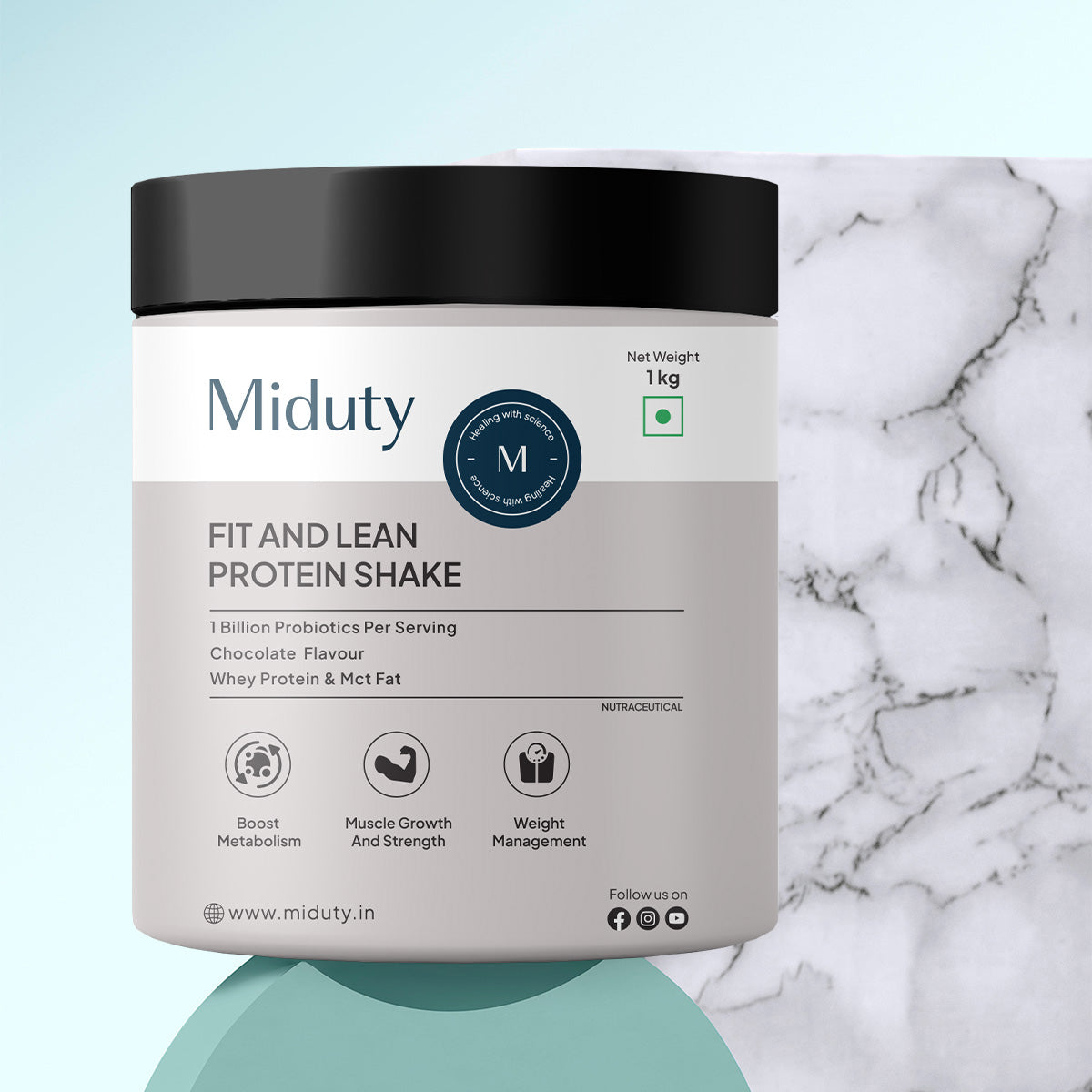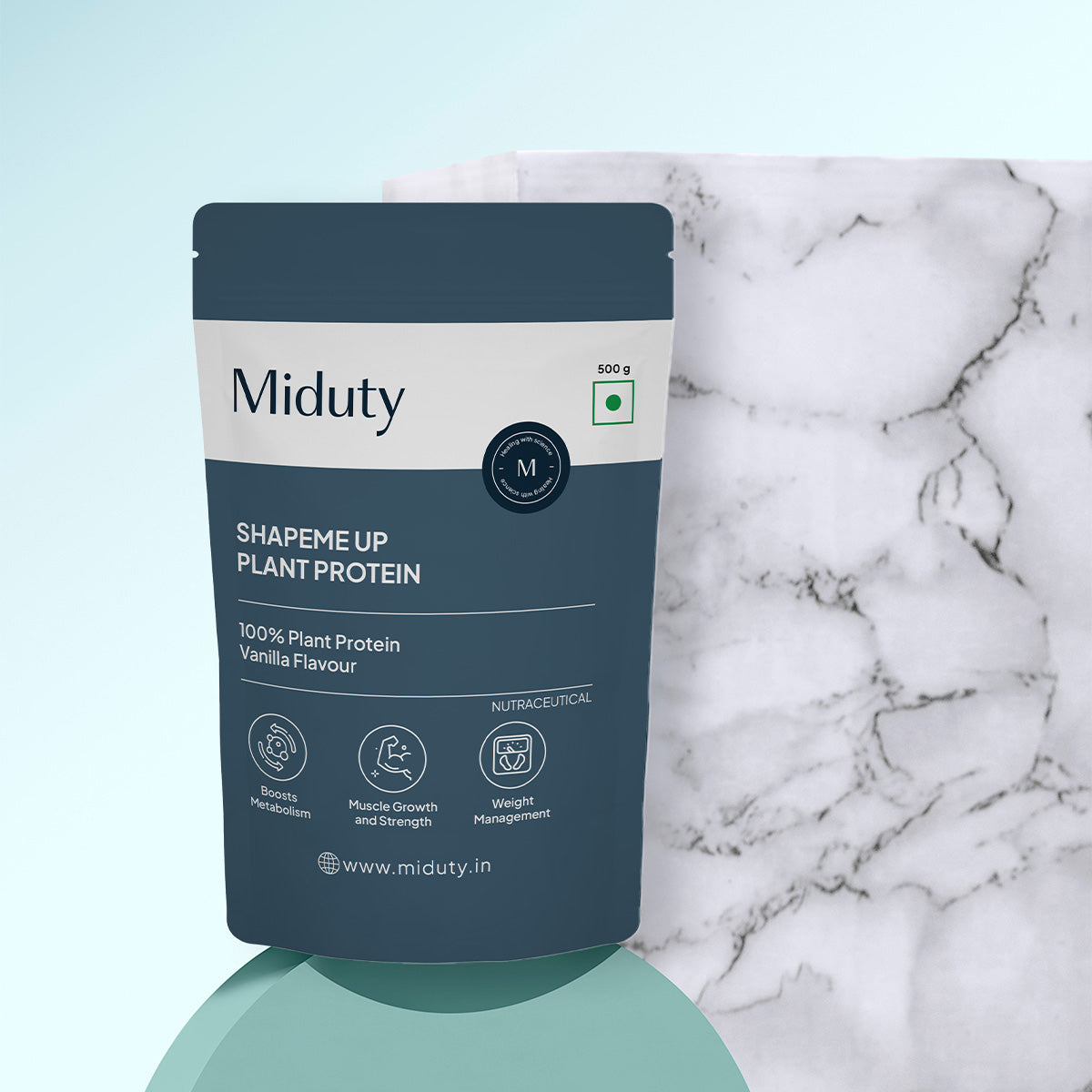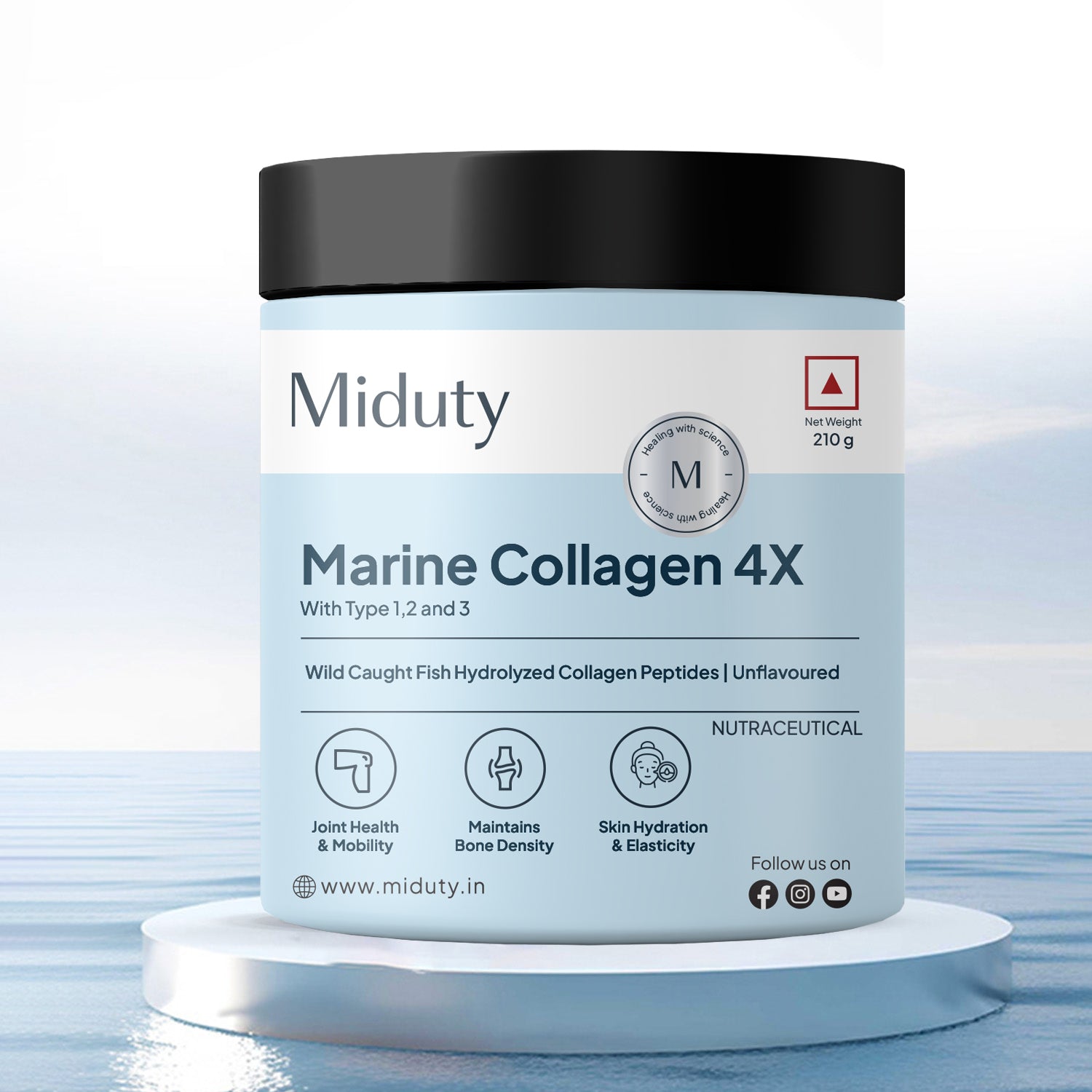
A Comprehensive Guide on Amino Acids
Key Takeaways
1. Amino acids are the building blocks of life: They form proteins that are essential for muscle growth, tissue repair, hormone production, and overall bodily functions.
2. Essential vs non-essential amino acids: The body cannot produce essential amino acids, so they must come from the diet, while non-essential amino acids are synthesized internally.
3. Support multiple body functions: Amino acids aid metabolism, immunity, brain health, detoxification, and overall energy balance, making them crucial for overall wellness.
4. Deficiency can affect health: Lack of amino acids may lead to fatigue, muscle loss, weak immunity, digestive issues, mood disturbances, and in children, slowed growth.
5. Supplements vs food sources: While amino acid supplements can aid muscle recovery, energy, and focus, a balanced diet should be the primary source, with supplementation considered when needed.
When we talk about nutrition, most people immediately think of proteins, vitamins, or minerals. But do you know what truly makes proteins so powerful? The Amino Acids. These tiny building blocks form the foundation of life itself. From building muscles to supporting brain health and immunity, amino acids play an indispensable role in keeping your body functioning at its best.
From your skin and hair to your enzymes and hormones, amino acids are silently at work 24/7, keeping everything running smoothly.
Whether you're a student, a health enthusiast, or someone curious about nutrition, this article will help you understand amino acids like never before. Let's start by understanding what amino acids are, why they matter, and how they work inside your body.
What Are Amino Acids?
Amino acids are organic compounds that combine to form proteins, which are crucial for nearly every biological process in the human body. They are made up of carbon (C), hydrogen (H), oxygen (O), and nitrogen (N), and sometimes sulfur (S). These small yet vital molecules are involved in processes such as metabolism, energy production, muscle repair, and the creation of hormones and neurotransmitters. [1]
When you eat protein-rich foods like eggs, meat, beans, or nuts, your body breaks them down into amino acids. These amino acids are then reused to build new proteins that your body needs to function.
In simpler words: [2]
- Proteins = Chains of amino acids.
- Amino acids = Building blocks of life.
Types of Amino Acids and Their Functions
There are 20 amino acids that the human body uses to make proteins. Out of these, they are classified into three main categories:
1. Essential Amino Acids
Your body cannot produce these amino acids on its own, so they must come from food sources. There are nine essential amino acids:
- Histidine - Important for growth, tissue repair, and the production of histamine (involved in immune response).
- Isoleucine - Helps with muscle metabolism and energy regulation.
- Leucine - Promotes muscle recovery and protein synthesis.
- Lysine - Supports immune health, hormone production, and collagen formation.
- Methionine - Aids in detoxification and metabolism of fats.
- Phenylalanine - Precursor for neurotransmitters like dopamine and adrenaline.
- Threonine - Crucial for collagen, elastin, and muscle tissue formation.
- Tryptophan - Helps in serotonin production, which regulates mood and sleep.
- Valine - Supports energy and muscle repair.
These are primarily obtained from animal proteins (like eggs, fish, and dairy), but vegetarians can also get them from soy, quinoa, lentils, and nuts.
2. Non-Essential Amino Acids
These amino acids are synthesized by your body even if you don't get them directly from food. They include:
- Alanine - Helps convert glucose into energy.
- Asparagine - Plays a role in nerve and brain function.
- Aspartic acid - Supports hormone production and metabolism.
- Glutamic acid - Essential for brain function and neurotransmission.
- Serine - Aids in the synthesis of DNA, RNA, and proteins.
3. Conditional Amino Acids
These are usually non-essential, but under certain conditions, like illness, stress, or trauma, your body may not produce enough of them. Examples include:
- Arginine - Promotes wound healing and supports immune and heart health by producing nitric oxide, which improves blood flow.
- Cysteine - Helps form antioxidants like glutathione, which protect cells from oxidative damage.
- Glutamine - Fuels intestinal cells and immune cells, maintaining gut health. It's especially important after surgery or intense exercise.
- Tyrosine - Supports brain function by creating neurotransmitters such as dopamine and adrenaline
- Glycine - Supports collagen, detoxification, and sleep while aiding protein and connective tissue formation.
- Proline - Helps with collagen synthesis, tissue repair, joint health, and wound healing.
- Ornithine - Supports nitrogen removal, recovery, and growth hormone release during stress or trauma.
For instance, after surgery or intense physical activity, the demand for glutamine (which supports muscle recovery and immune function) may rise significantly.
The Benefits of Amino Acids in the Body
Each amino acid has a specific function, and collectively, they influence nearly every system in the human body. Let's explore their key roles in detail:
1. Building Proteins and Muscles
Amino acids are the fundamental building blocks of proteins, which are essential for muscle growth, repair, and maintenance. Athletes, bodybuilders, and individuals recovering from injury or surgery rely on amino acids to rebuild damaged muscle tissues efficiently. Branched-chain amino acids (BCAAs), leucine, isoleucine, and valine are especially important because they directly stimulate muscle protein synthesis, helping preserve lean muscle mass and improve exercise performance. [3]
2. Supporting Metabolism and Energy Production
Certain amino acids, like alanine and glutamine, play a crucial role in energy metabolism. They help convert nutrients such as carbohydrates and fats into usable energy, ensuring your body stays active, alert, and functioning optimally throughout the day. Additionally, amino acids help regulate blood sugar levels and support energy balance during periods of physical stress or intense activity.
3. Hormone and Enzyme Production
Amino acids are key components of hormones and enzymes, which control countless biochemical processes in the body. Hormones like insulin and adrenaline rely on amino acids for their production, regulating metabolism, growth, and stress responses. Similarly, enzymes that drive digestion, cellular repair, and metabolic reactions cannot function without the proper supply of amino acids.
4. Strengthening the Immune System
Amino acids such as arginine, cysteine, and glutamine play a vital role in maintaining a strong immune system. They support the production and function of white blood cells and other immune components, helping your body fight infections, heal wounds, and recover from illness or physical stress. Adequate amino acids ensure your immune system can respond effectively to pathogens and maintain overall health.
5. Supporting Brain and Mental Health
Certain amino acids serve as precursors to neurotransmitters that regulate mood, focus, and sleep. For example, tryptophan is essential for serotonin production, while tyrosine is required for dopamine and norepinephrine synthesis. A deficiency in these amino acids can lead to mood swings, fatigue, reduced cognitive function, and poor concentration, highlighting their critical role in mental and emotional well-being.
6. Detoxification and Liver Function
Amino acids like methionine and cysteine are necessary for producing glutathione, one of the body's most powerful antioxidants. Glutathione helps the liver neutralize harmful toxins, combat oxidative stress, and support overall detoxification processes. By maintaining proper amino acid levels, the liver can function efficiently, protecting the body from chemical damage and promoting long-term health.
Food Sources of Amino Acids
To maintain a healthy balance of all 20 amino acids, you should consume a variety of complete and incomplete proteins. [4] [5]
1. Complete Proteins (contain all essential amino acids)
- Eggs
- Fish and seafood
- Poultry
- Yogurt
- Cheese
- Quinoa
2. Incomplete Proteins (missing one or more essential amino acids)
- Legumes (beans, lentils, chickpeas)
- Nuts and seeds
- Vegetables like spinach and broccoli
Combining different plant-based sources, for example, rice with beans, can provide all essential amino acids, making it a complete protein meal.
Signs of Amino Acids Deficiency
When your body doesn't get enough amino acids, you may experience:
- Constant fatigue or weakness
- Muscle loss or slow recovery after exercise
- Poor concentration or mood swings
- Brittle hair and nails
- Low immunity or frequent infections
- Digestive issue
- Depression
- Loss of Appetite
Amino Acid Supplements: Do You Need Them?
Amino acid supplements have become incredibly popular, but do you really need them? The answer depends on your lifestyle, diet, and health goals.
- Faster Recovery: Supplements like BCAAs or glutamine can help reduce muscle soreness after workouts.
- Improved Energy: During fasting or low-calorie diets, amino acids prevent muscle breakdown while maintaining energy.
- Enhanced Focus: Some amino acids (like tyrosine) boost cognitive function, especially during stress.
- Convenience: Great for athletes or busy individuals who may not always have time for balanced meals.
- Individuals with restricted diets (like vegans or vegetarians)
Addressing these signs early with a protein-rich diet or supplements can restore balance and prevent long-term issues.
Final Thoughts
Amino acids are more than just nutrients; they are the foundation of life and vitality. They not only build and repair muscles, but also strengthen the immune system, support brain function, regulate hormones, and aid in detoxification. Their presence is critical for maintaining energy levels, promoting mental clarity, and ensuring that every organ and tissue functions optimally.
A consistent supply of amino acids, whether from protein-rich foods like eggs, dairy, meat, legumes, and soy, or from high-quality supplements when dietary intake is insufficient, is essential for your body to perform at its best. By meeting your amino acid needs, you empower your body to recover faster, think sharper, and stay resilient against illness.
FAQ's on Amino Acids
Q1. What are the benefits of amino acids?
Amino acids are vital for building and repairing tissues, producing hormones and neurotransmitters, and supporting key functions like immunity, digestion, and energy. They also aid in muscle growth, skin and hair health, and overall metabolic and mood balance.
Q2. What are the symptoms of amino acid deficiency?
Amino acid deficiency can cause fatigue, muscle loss, slow wound healing, weakened immunity, digestive issues, and mood disturbances. In children, it may also result in slowed growth and developmental delays.
Q3. Who needs amino acids?
All living organisms, including humans, require amino acids to build and repair proteins for vital functions like muscle growth, hormone production, and immunity. Certain groups, such as children, pregnant or lactating women, and the elderly, may need extra dietary attention to meet their specific amino acid needs.
Q4. What is the most powerful amino acid?
No single amino acid is universally the "most powerful," as their importance varies by function. For example, leucine boosts muscle growth, glutamine supports immunity and recovery, histidine aids neurotransmitter production, and arginine promotes healthy blood flow.
Q5. What happens if you take amino acids every day?
Daily amino acid intake can support muscle growth and exercise performance, but proper dosage is essential to avoid side effects like nausea, cramps, or digestive issues. It's best to prioritize food sources and consult a healthcare professional before using supplements, especially if you have health conditions or take medications.
References













